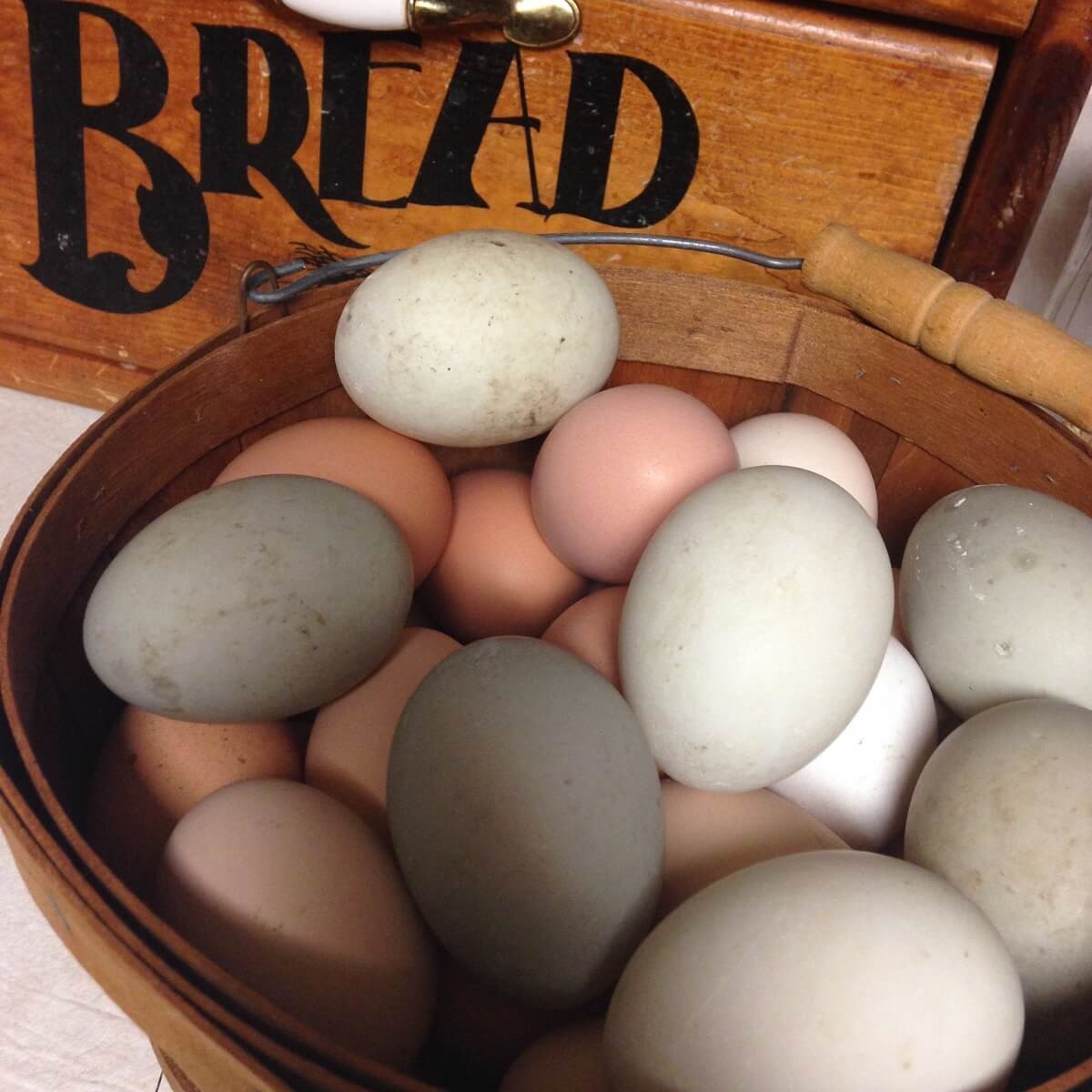

Articles
How To Store Duck Eggs
Modified: October 20, 2024
Learn the best methods for storing duck eggs in this informative article. Keep your eggs fresh and delicious for longer with these helpful tips.
(Many of the links in this article redirect to a specific reviewed product. Your purchase of these products through affiliate links helps to generate commission for Storables.com, at no extra cost. Learn more)
Introduction
Welcome to the world of duck egg storage! If you’re a proud duck owner or have recently come across a delightful batch of fresh duck eggs, you may be wondering how best to store them to maintain their freshness and quality. Duck eggs are not only delicious but also incredibly versatile in cooking, making them a sought-after ingredient in various cuisines. However, storing duck eggs correctly is essential to ensure they stay safe to eat and retain their flavor.
In this article, we’ll explore why it’s crucial to store duck eggs properly, how to select fresh duck eggs, and the different methods for storing them. Whether you have a few duck eggs or a surplus from your flock, we’ll guide you through the steps to preserve their quality and extend their shelf life.
Before we dive into the details, let’s understand why proper storage is vital for duck eggs.
Key Takeaways:
- Proper storage of duck eggs is crucial to maintain freshness, flavor, and quality. Select fresh eggs, handle them with care, and choose the right storage method based on your needs to enjoy delicious duck eggs year-round.
- Whether using room temperature storage, refrigeration, or long-term storage, following proper techniques and regular checks for freshness will ensure your duck eggs remain safe to eat and maintain their unique flavor characteristics.
Read more: How To Store A Duck For Taxidermy
Why Store Duck Eggs?
Storing duck eggs correctly is essential for several reasons. Firstly, duck eggs, like any other eggs, have a limited shelf life. Proper storage techniques can help extend their freshness and prevent spoilage. Secondly, if you have a growing flock of ducks or receive a large number of eggs from a supplier, you may not be able to consume them all immediately. In such cases, storing duck eggs becomes necessary to avoid wastage.
Furthermore, storing duck eggs properly can allow you to enjoy their unique flavor characteristics and culinary benefits long after they have been laid. Duck eggs have a richer and creamier yolk compared to chicken eggs, making them a popular choice for baking and cooking. By storing them correctly, you can ensure that they maintain their taste and texture, enhancing your culinary creations whenever you decide to use them.
Another advantage of storing duck eggs is that it allows you to enjoy fresh eggs even during the off-season or when your ducks are not laying as frequently. By preserving your excess duck eggs, you can have a supply of nutritious and delicious eggs all year round.
Lastly, properly stored duck eggs can be an excellent option for individuals who prefer to buy in bulk or stock up during sales or promotions. By knowing the right methods of storage, you can take advantage of these opportunities and have a steady supply of eggs without worrying about them going bad before you have the chance to use them.
Now that we’ve explored the importance of storing duck eggs, let’s move on to the next step: selecting fresh duck eggs.
Selecting Fresh Duck Eggs
When it comes to storing duck eggs, starting with fresh and high-quality eggs is key. Here are some tips to help you select the best eggs for storage:
- Choose eggs with intact shells: Inspect the eggs and make sure they have no cracks or leaks. Damaged shells can introduce bacteria and compromise the egg’s safety and freshness.
- Look for clean and unsoiled eggs: Dirty or soiled eggs can harbor bacteria, so it’s best to choose clean eggs that have been properly cleaned and stored.
- Check the egg’s appearance: Fresh duck eggs typically have a smooth and even-colored shell. Avoid eggs with unusual discoloration or spots, as they may indicate age or spoilage.
- Consider the egg’s weight: Fresh duck eggs will feel heavier compared to older or stale eggs. Lighter eggs may suggest that the egg has lost moisture and freshness.
- Observe the egg’s freshness at home: To further ensure the freshness of the duck eggs, you can perform a simple freshness test at home. Fill a bowl with water and gently place the eggs in it. Fresh eggs will sink to the bottom and lay flat. Eggs that float or stand upright may not be fresh and should be discarded.
By following these guidelines, you can select the freshest and highest quality duck eggs for storage. Remember that the freshness of the eggs will determine how long they can be stored and maintain their flavor and quality.
Now that you’ve selected the best duck eggs, let’s move on to the next step: preparing the eggs for storage.
Preparing Duck Eggs for Storage
Before you proceed with storing duck eggs, it’s important to prepare them properly to ensure their longevity and safety. Here are the steps to follow:
- Handle the eggs with care: When handling duck eggs, make sure to handle them gently to avoid any unnecessary jostling or dropping. Rough handling can lead to cracks in the shells, increasing the risk of contamination.
- Clean the eggs (if necessary): If you notice any dirt or debris on the eggshells, you can gently clean them using a damp cloth or sponge. Avoid using soap or cleaning agents as they can remove the natural protective coating on the eggs.
- Avoid washing the eggs: Unlike chicken eggs, duck eggs have a thicker protective coating known as the “bloom” or “cuticle.” This natural coating helps to seal the pores on the eggshell and acts as a barrier against bacteria. Washing duck eggs can remove this protective layer, making them more susceptible to spoilage.
- Inspect the eggs again: After cleaning, inspect the eggs once more to ensure there are no visible cracks or signs of damage. Discard any eggs that appear questionable.
- Allow the eggs to come to room temperature: It’s best to let the eggs sit at room temperature for a couple of hours before storing them. This allows the eggs to stabilize and helps prevent condensation from forming inside the storage container.
By following these preparation steps, you can ensure that your duck eggs are in the best condition for storage. Now it’s time to explore different storage methods based on your needs and available resources.
Next, we will discuss two common storage methods: room temperature storage and refrigerator storage.
Room Temperature Storage
Room temperature storage is a traditional method for preserving duck eggs, especially in regions where refrigeration may not be readily available. However, it’s important to note that room temperature storage is suitable only for short-term storage, typically up to a week or two.
Here’s how to store duck eggs at room temperature:
- Find a cool and dry place: Choose a location in your home that maintains a consistent temperature between 50-70°F (10-21°C) and has low humidity. Avoid areas near direct sunlight, heat sources, or areas prone to temperature fluctuations.
- Use a breathable container: Select a container that allows air circulation, such as a wire basket or egg tray. Avoid using plastic bags or airtight containers, as they can trap moisture and increase the risk of spoilage.
- Arrange the eggs with care: Place the eggs in the container with the pointed ends facing downwards. This position helps to keep the yolk centered and maintain the overall quality of the egg.
- Rotate the eggs regularly: Every few days, gently rotate the eggs to prevent the yolks from sticking to the inner membrane. This will help maintain their integrity and ensure an even distribution of moisture.
- Regularly check for freshness: As the eggs are stored at room temperature, it’s important to check for any signs of spoilage such as an off-putting odor or unusual discoloration. Discard any eggs that show signs of spoilage.
Remember that room temperature storage is not suitable for long-term preservation. It’s essential to consume the eggs within a week or two to ensure their safety and quality. If you have a surplus of duck eggs or you plan to store them for a longer period, it’s recommended to consider refrigeration or long-term storage methods.
Next, we will explore the popular option of refrigerating duck eggs for extended storage.
Store duck eggs with the pointed end down in a cool, humid place, such as a cellar or refrigerator. Turn them once a week to prevent the yolk from sticking to the shell.
Read more: How To Store Duck Fat
Refrigerator Storage
Refrigeration is a widely popular and effective method for storing duck eggs, providing a longer shelf life compared to room temperature storage. Refrigerating duck eggs helps to maintain their freshness and quality for a longer period, making it a preferred option for many duck egg enthusiasts.
Here’s how to store duck eggs in the refrigerator:
- Keep eggs in their original state: It’s best to refrigerate duck eggs in their natural form, without washing or removing the protective bloom. This helps to maintain their freshness and prevent any unnecessary moisture loss.
- Check the refrigerator temperature: Make sure your refrigerator is set to a consistent temperature of around 40°F (4°C). Temperature fluctuations can affect the quality and safety of the eggs.
- Use an egg carton or storage container: Place the duck eggs in an egg carton or a lidded container specifically designed for storing eggs. This provides protection from any strong odors in the refrigerator and prevents the eggs from absorbing unwanted flavors.
- Store eggs in the main body of the refrigerator: Place the egg carton or storage container in the main body of the refrigerator, rather than on the refrigerator door. The main body of the refrigerator tends to have a more stable temperature and less fluctuation.
- Avoid storing eggs near strong-smelling foods: Duck eggs have a porous shell, which means they can absorb odors from other foods in the refrigerator. Keep them away from strong-smelling foods like onions, garlic, or fish to maintain their flavor.
- Rotate the eggs: Every week, give the egg carton a gentle rotation to ensure even cooling and prevent any potential sticking of the yolks.
- Check for freshness regularly: While refrigeration can significantly extend the shelf life of duck eggs, it’s still important to regularly check for any signs of spoilage. If an egg looks or smells off, discard it immediately.
Refrigerated duck eggs can typically stay fresh for up to 4-5 weeks. However, keep in mind that the longer the eggs are stored, the more the quality and texture of the yolks may change. For the best flavor and culinary experience, it’s recommended to use the eggs within the first few weeks of refrigeration.
Now that you know how to store duck eggs in the refrigerator, let’s explore a long-term storage option for those who want to store eggs for an extended period.
Long-Term Storage
If you have a surplus of duck eggs or want to store them for an extended period, long-term storage is an ideal option. This method helps to preserve the eggs for several months, ensuring that you have a steady supply of eggs even during seasonal fluctuations or when your ducks are not laying as frequently.
Here’s how to store duck eggs for the long term:
- Choose fresh and unblemished eggs: Select duck eggs that are in their prime with intact and uncracked shells. Fresh eggs have a higher chance of staying intact and maintaining their quality during long-term storage.
- Collect and clean the eggs: Gather the eggs gently and inspect them for any visible dirt or debris. Wipe off any soiling with a dry cloth or sponge, but avoid washing the eggs as it can remove the protective bloom.
- Allow the eggs to come to room temperature: Let the eggs sit at room temperature for a few hours to stabilize before placing them in long-term storage containers.
- Choose an appropriate storage container: Select containers specifically designed for long-term egg storage, such as egg storage trays or cartons, or even plastic egg storage boxes with individual compartments. These containers help to protect the eggs and prevent them from rolling or moving around.
- Position the eggs correctly: Place the eggs in the storage container with the pointed end down. This helps to keep the air cell at the top and prevents the yolks from sagging or adhering to the inner membranes.
- Label and date the eggs: To keep track of the freshness and storage duration, label each storage container with the date the eggs were stored. This will help you identify the oldest eggs and prioritize their usage.
- Store the eggs in a cool and dark location: Find a cool and dark spot in your home, such as a cellar or basement, with a temperature range between 45-55°F (7-13°C). Avoid areas with high humidity or temperature fluctuations.
- Regularly check for freshness: Every few weeks, inspect the stored eggs for any signs of spoilage. Remove any eggs that show signs of deterioration to prevent the spread of spoilage to other eggs.
With proper long-term storage, duck eggs can remain edible for up to 6-9 months. However, the quality and flavor of the eggs may gradually decline over time. It’s best to prioritize the use of the stored eggs and consume them within the first few months for the best culinary experience.
Now that we’ve explored long-term storage, let’s move on to some helpful tips for properly storing duck eggs.
Tips for Properly Storing Duck Eggs
To ensure that your duck eggs stay fresh and safe to eat, here are some additional tips for proper storage:
- Handle eggs with care: Always handle duck eggs gently to minimize the risk of cracking or damaging the shells. This will help maintain their structural integrity and prevent the entry of bacteria.
- Use fresh eggs for long-term storage: While fresh eggs are suitable for both short-term and long-term storage, it’s best to prioritize the use of the freshest eggs for long-term storage. This ensures that the eggs have the best chance of lasting longer without compromising their quality.
- Store eggs with the air cell up: When storing duck eggs, position them with the air cell, or the rounded end, facing up. This helps to maintain the yolk’s position and integrity by preventing it from adhering to the inner membrane.
- Avoid extreme temperatures: Duck eggs are sensitive to extreme temperatures. It’s important to store them in a cool and stable environment, whether at room temperature or in the refrigerator. Extreme heat or cold can affect their quality and increase the risk of spoilage.
- Do not freeze whole eggs in the shell: Freezing duck eggs in their shells is not recommended. The liquid inside the egg expands when frozen, causing the shell to crack and potentially lead to bacterial contamination. If you plan to freeze duck eggs, it’s best to break and store them in a suitable container.
- Rotate eggs regularly: Regularly rotate the eggs, especially when using long-term storage methods. This helps to distribute the yolk’s position within the egg and prevents any potential sticking or sagging.
- Keep track of storage duration: Labeling your storage containers with the date of storage can help you keep track of how long the eggs have been stored. This allows you to prioritize the use of older eggs first and ensures freshness.
- Discard spoiled eggs immediately: If you notice any eggs showing signs of spoilage, such as an off-putting odor, abnormal discoloration, or mold growth, discard them immediately. Consuming spoiled eggs can lead to foodborne illnesses.
By following these tips, you can maximize the freshness and shelf life of your duck eggs, whether you store them at room temperature, in the refrigerator, or for long-term storage.
Now, let’s address some frequently asked questions about storing duck eggs to provide further clarity on this topic.
Frequently Asked Questions
Here are answers to some frequently asked questions about storing duck eggs:
- Can I store duck eggs with chicken eggs?
It is generally not recommended to store duck eggs with chicken eggs. Duck eggs have a higher likelihood of absorbing odors, flavors, and bacteria from other foods. Keeping them separate helps maintain their distinct flavors and ensures food safety. - Can I store unwashed duck eggs?
Yes, it is best to store unwashed duck eggs as they come with a natural protective bloom that helps seal the pores on the shell. Washing the eggs removes this protective layer and increases the risk of contamination and spoilage. - How long can duck eggs be stored in the refrigerator?
Duck eggs can typically be stored in the refrigerator for up to 4-5 weeks. However, it’s essential to check for freshness regularly and use eggs within the recommended time frame for the best flavor and quality. - What is the best temperature for storing duck eggs?
The ideal temperature for storing duck eggs is around 45-55°F (7-13°C). This range helps slow down bacterial growth and maintains the eggs’ freshness and quality. - Can I freeze duck eggs?
While whole duck eggs are not recommended for freezing in their shells, you can break and freeze duck eggs in a suitable container. Be sure to label the container with the date and use them within 3-6 months for the best results. - How can I tell if a stored duck egg is still fresh?
To check the freshness of a stored duck egg, you can perform the float test. Place the egg in a bowl of water: if it sinks to the bottom and lies flat, it is fresh; if it stands upright or floats, it is no longer fresh and should be discarded. - Can I store cracked duck eggs?
It is best to avoid storing cracked duck eggs, as they are more susceptible to bacteria contamination. Cracked eggs should be used immediately or discarded to ensure food safety.
These answers should help address some common concerns about storing duck eggs. If you have any additional questions or uncertainties, it is always best to consult with local health guidelines or agricultural resources for specific recommendations.
Now, let’s wrap up this article.
Read more: How To Store Egg
Conclusion
Properly storing duck eggs is essential to preserve their freshness, flavor, and quality. Whether you have a few eggs from your backyard flock or a surplus batch, following the right storage methods can help you enjoy these versatile and delicious eggs for an extended period.
When storing duck eggs, it’s important to choose fresh eggs with intact shells and handle them with care. Preparing the eggs by cleaning them (if necessary) and allowing them to come to room temperature ensures they are in the best condition for storage.
There are various storage methods to consider based on your needs. Room temperature storage is suitable for short-term use, while refrigeration extends the shelf life for several weeks. For those looking for longer-term storage, utilizing low temperatures and proper containers enables you to keep duck eggs edible for several months.
Remember to rotate the eggs regularly, check for signs of spoilage, and consume eggs within their recommended storage duration for optimal taste and safety. Following these tips will help you enjoy fresh and delicious duck eggs year-round.
If you have further questions about storing duck eggs, refer to the frequently asked questions section or consult local health guidelines or agricultural resources for specific recommendations.
Now that you are equipped with the knowledge to properly store duck eggs, go ahead and make the most of your duck eggs by safely and effectively preserving their freshness and enjoying their culinary delights!
Frequently Asked Questions about How To Store Duck Eggs
Was this page helpful?
At Storables.com, we guarantee accurate and reliable information. Our content, validated by Expert Board Contributors, is crafted following stringent Editorial Policies. We're committed to providing you with well-researched, expert-backed insights for all your informational needs.
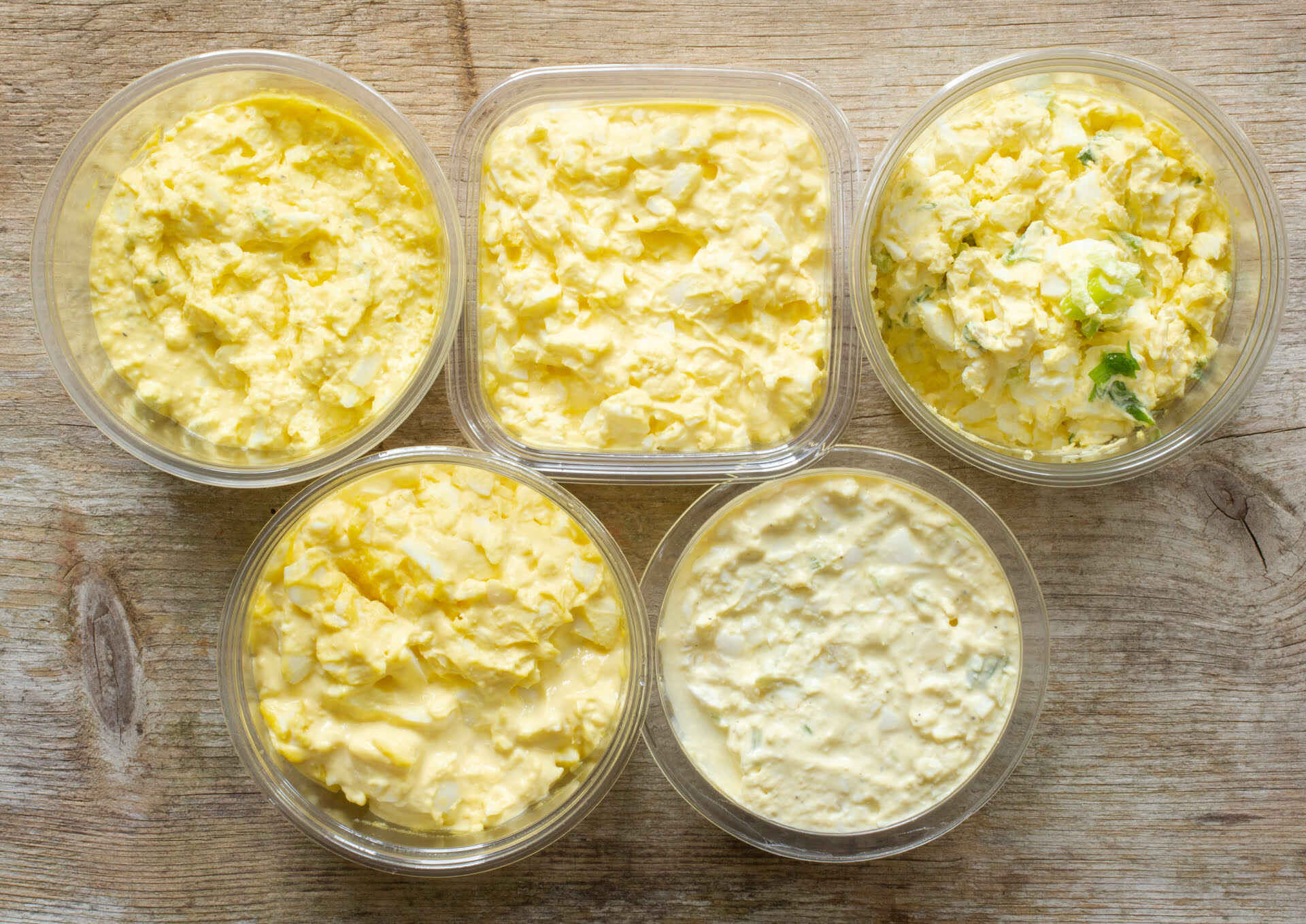
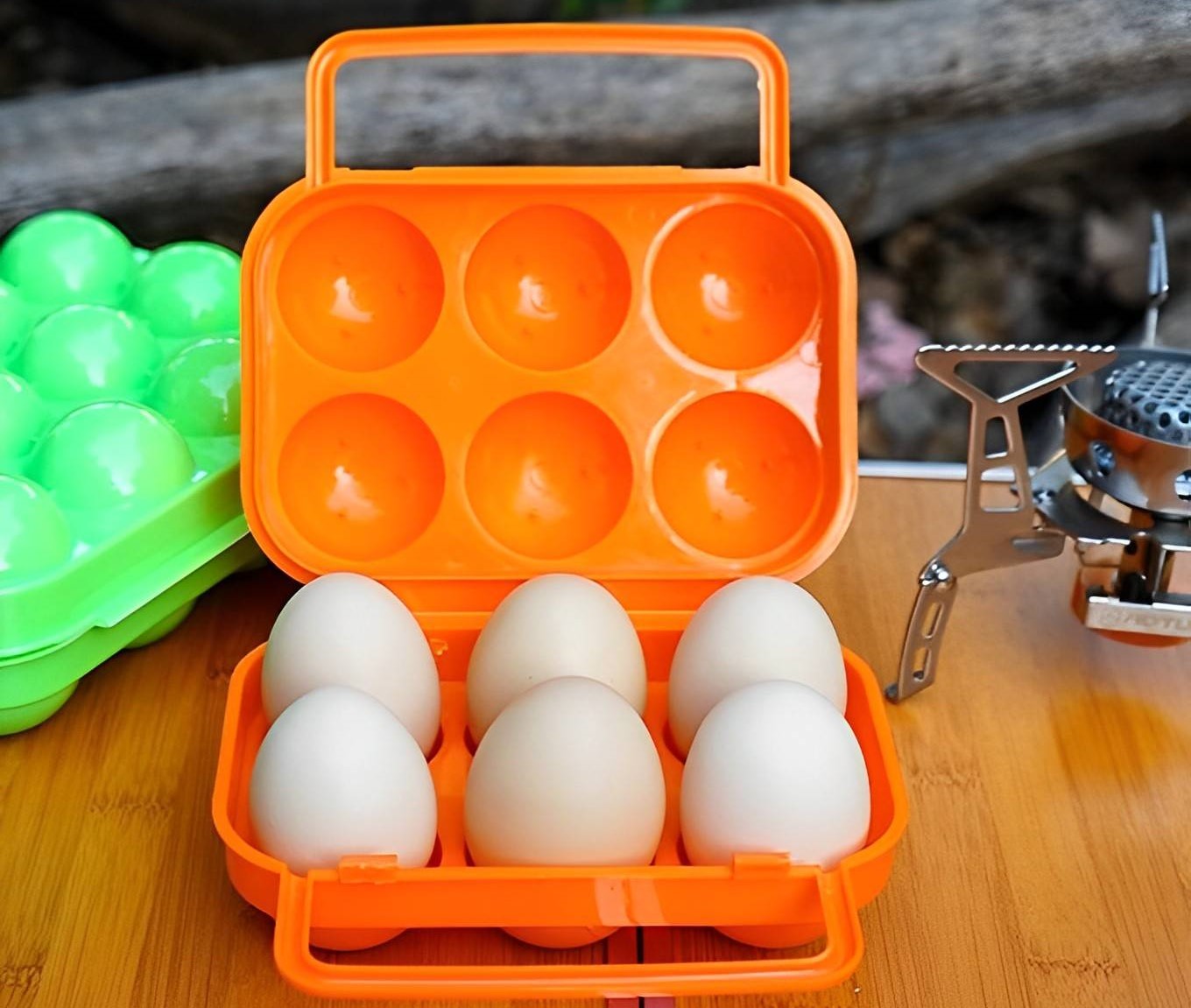
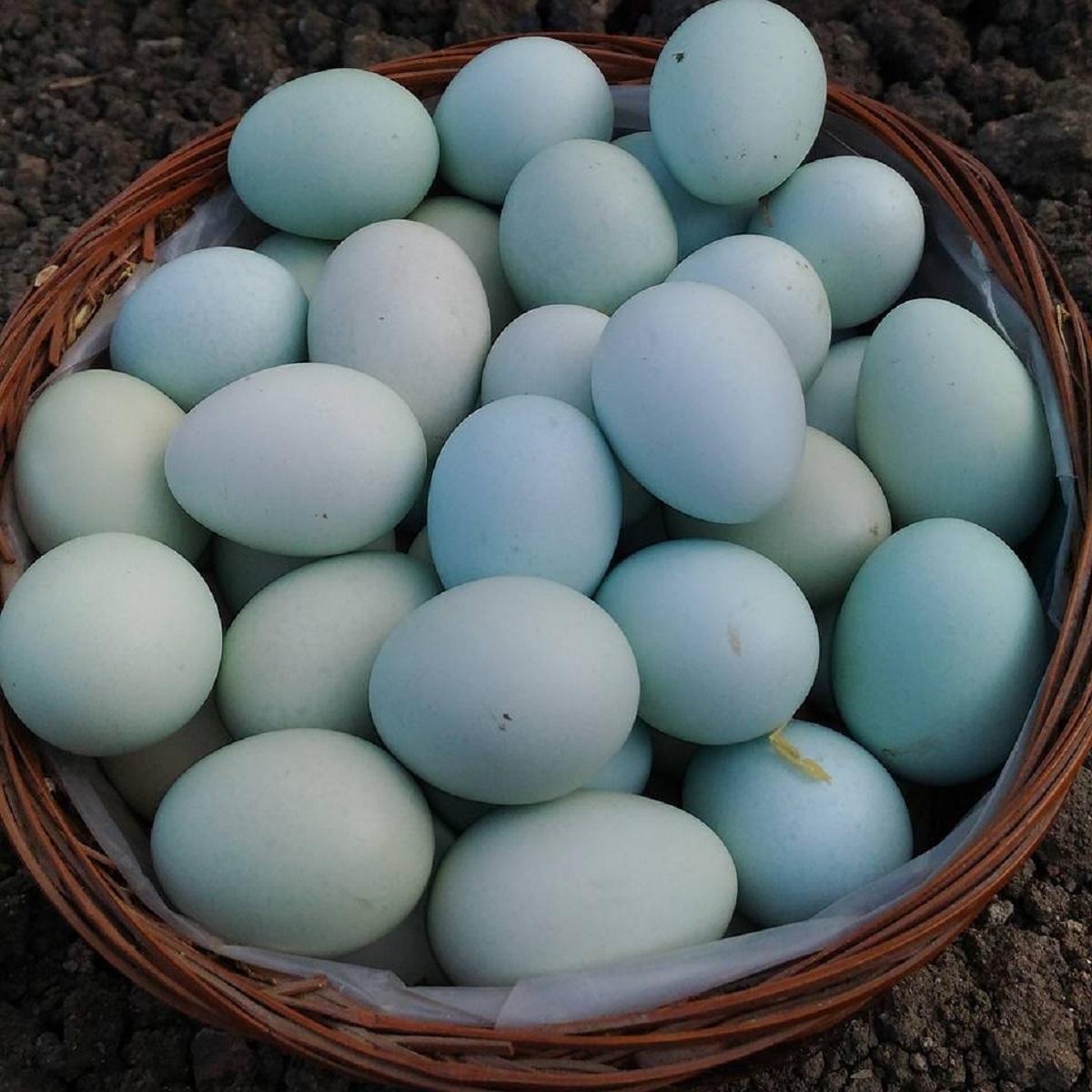


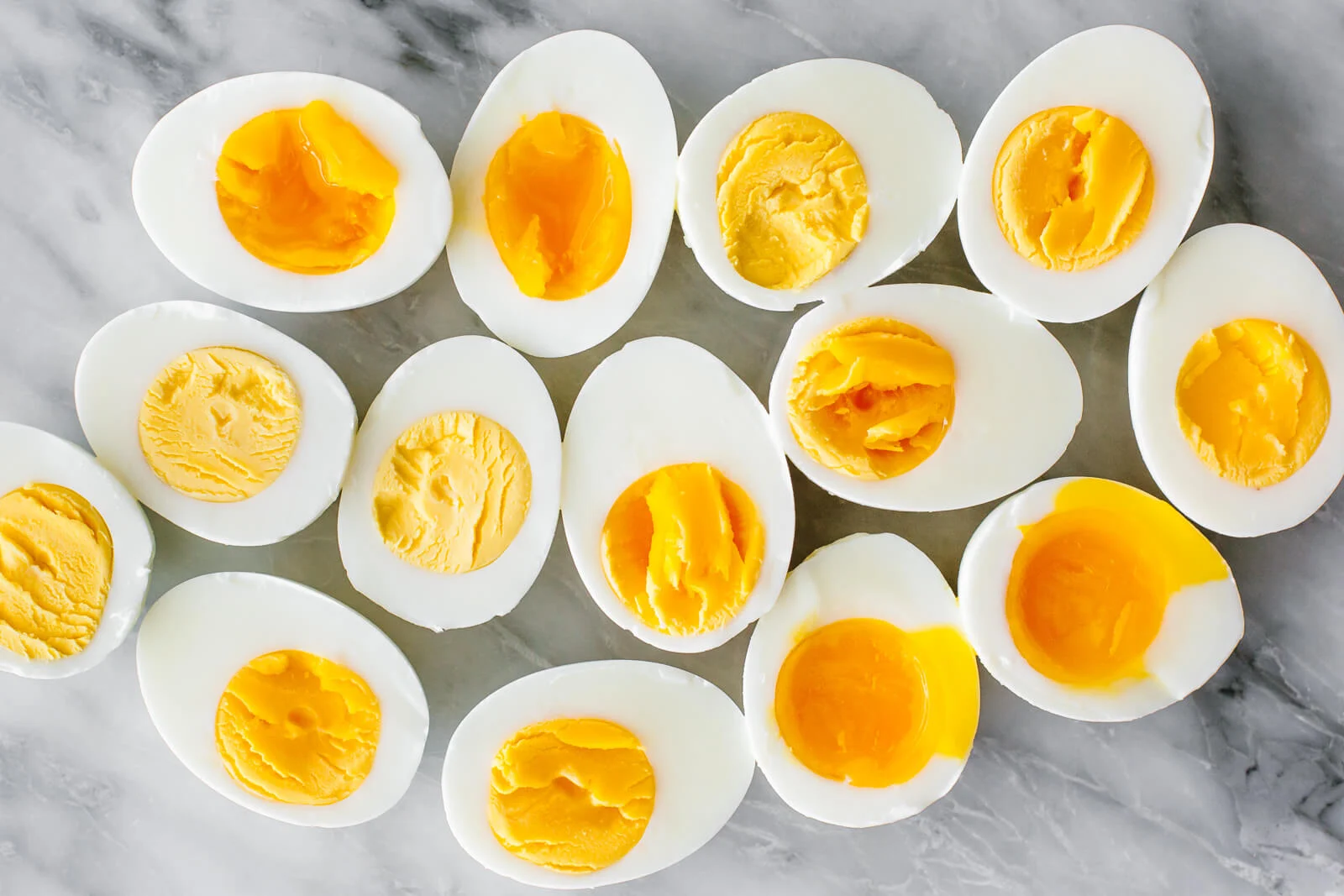
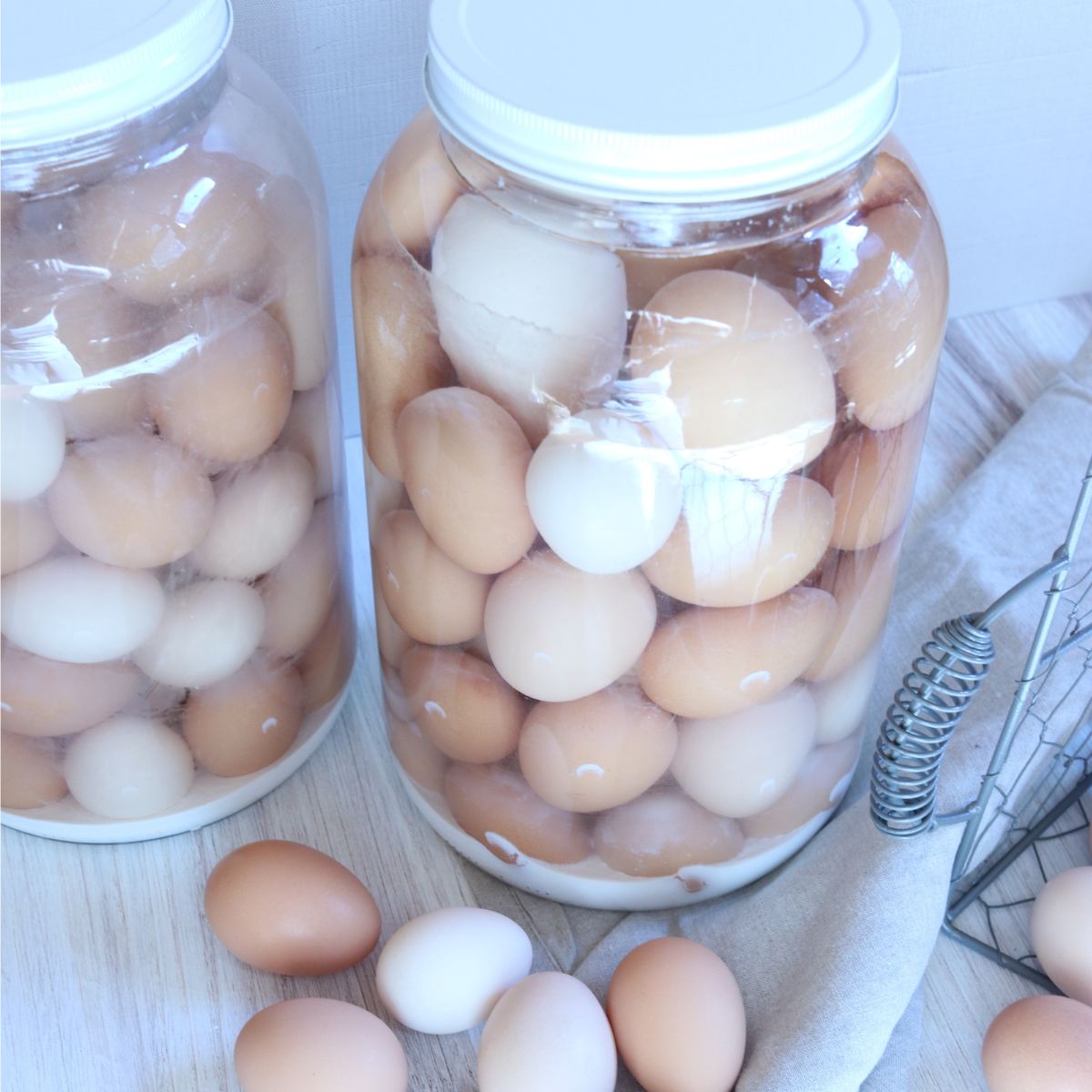
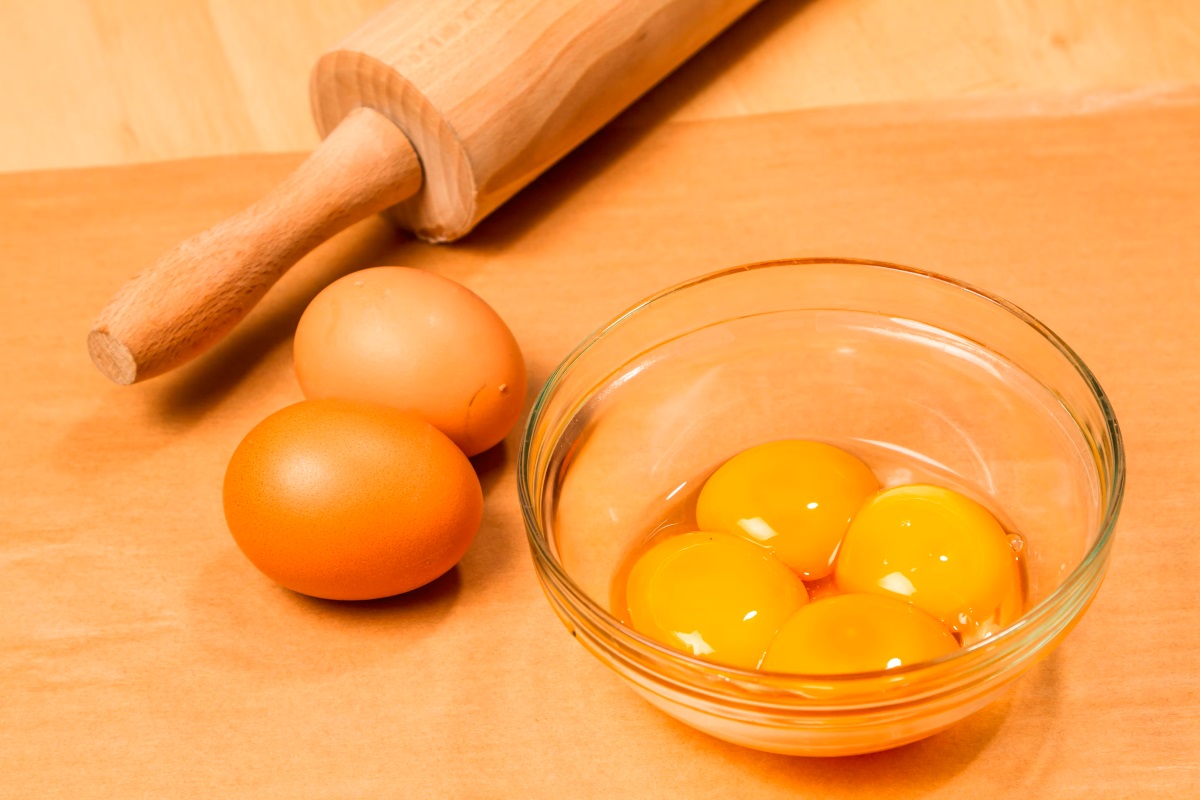
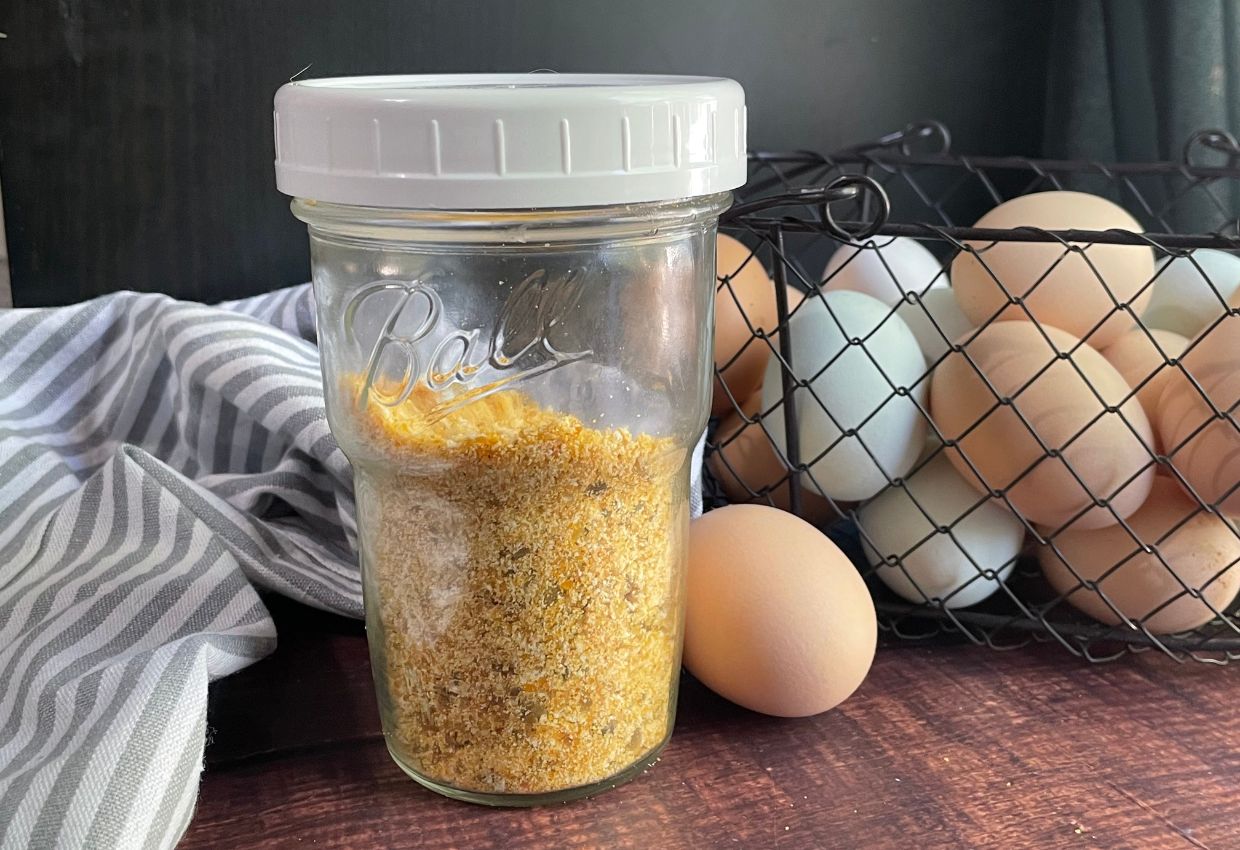
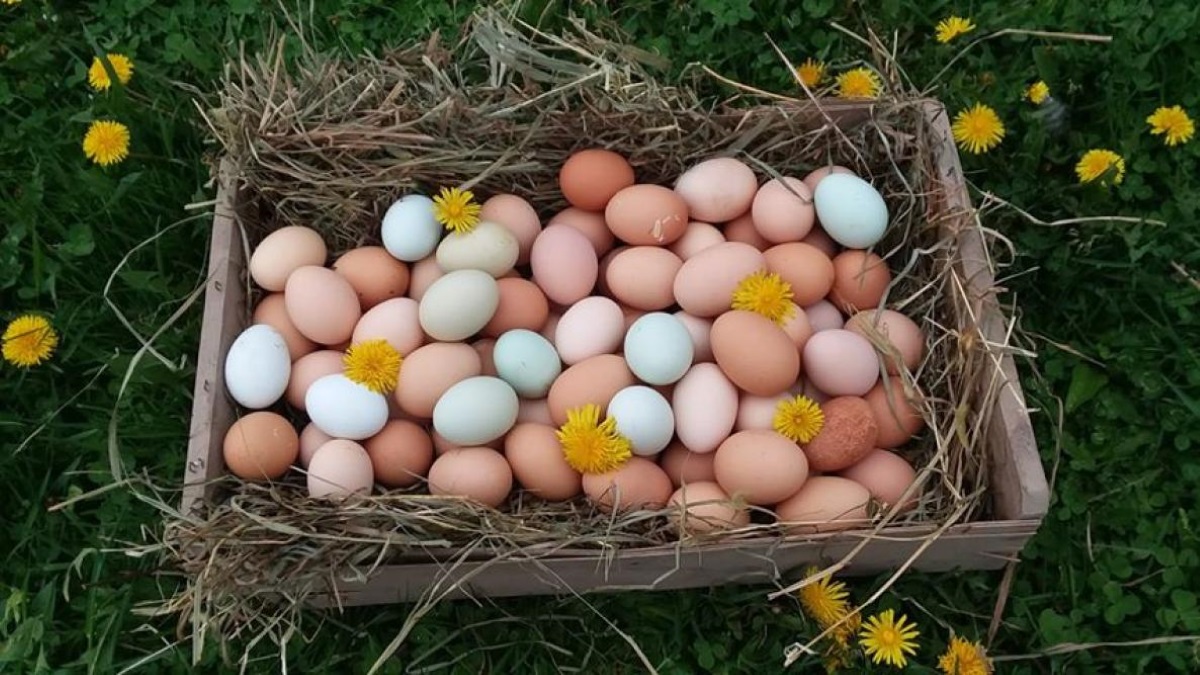
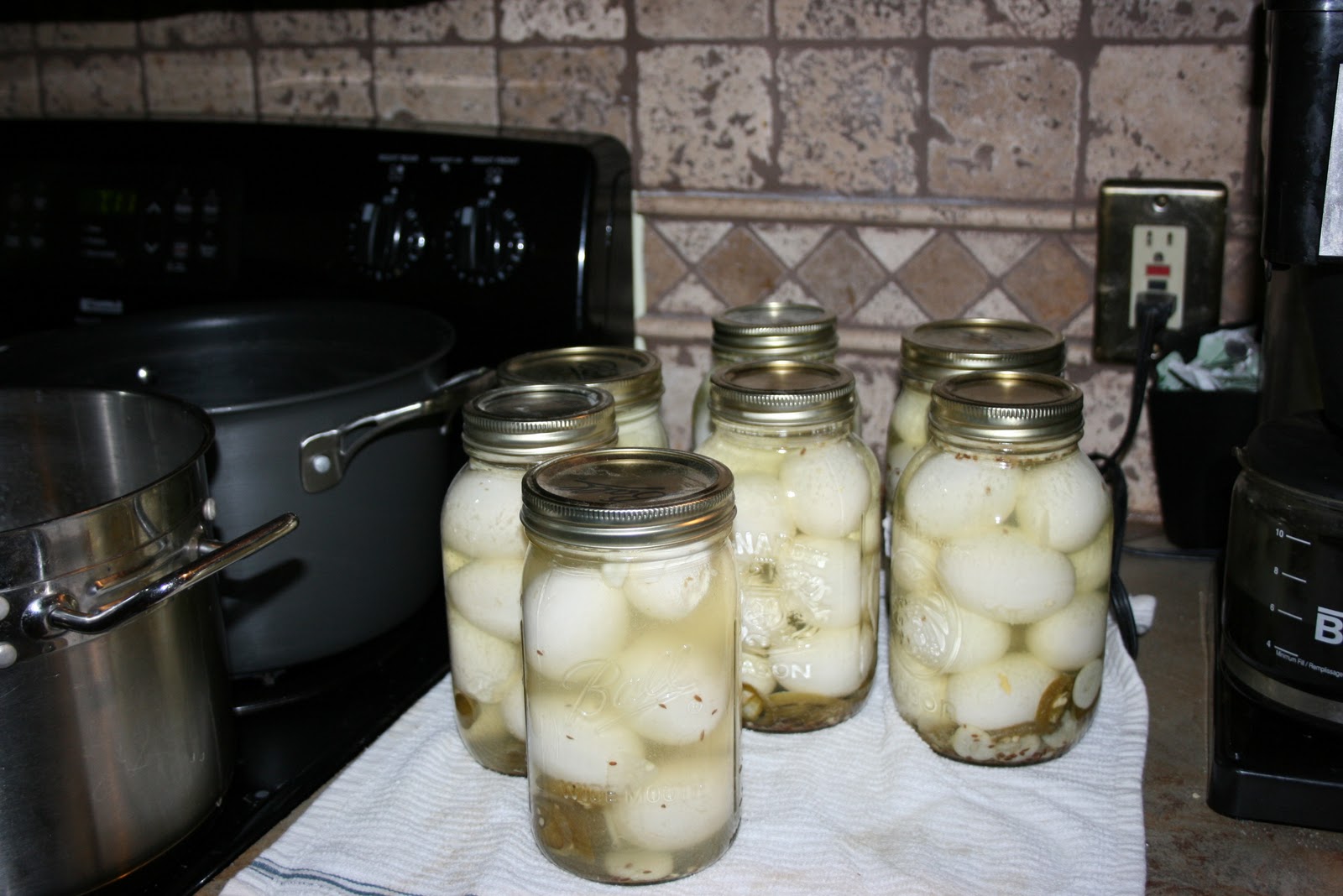
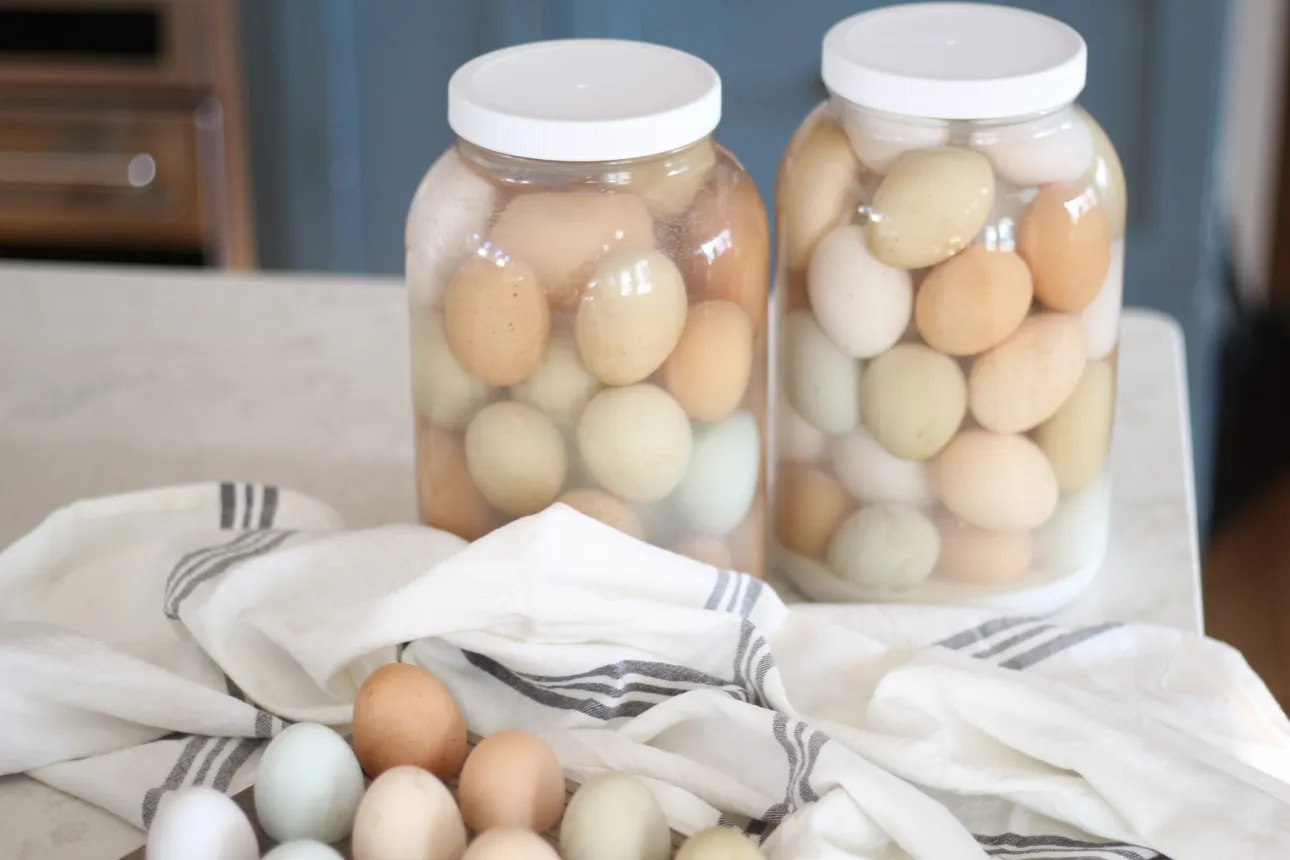
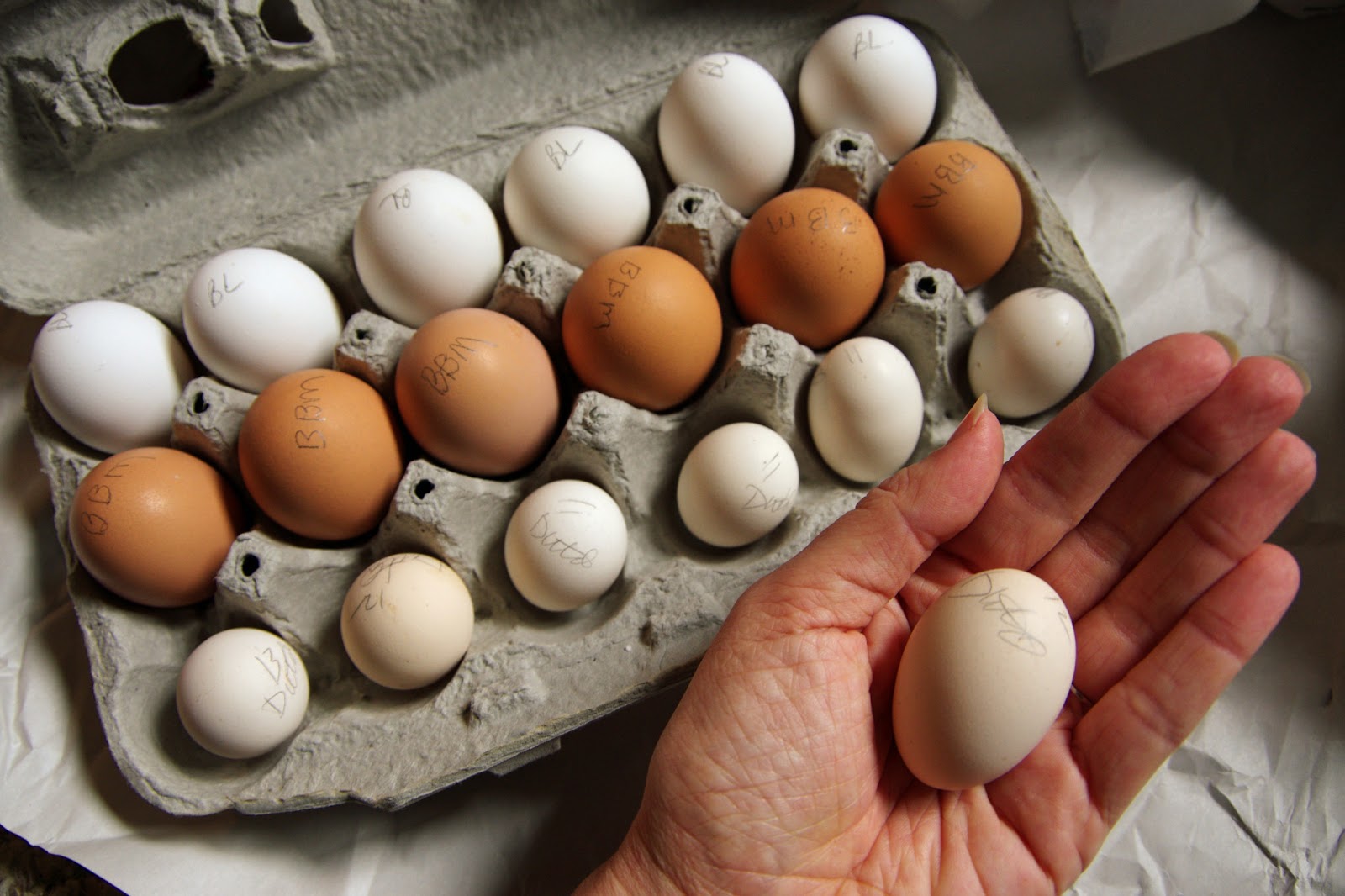

0 thoughts on “How To Store Duck Eggs”